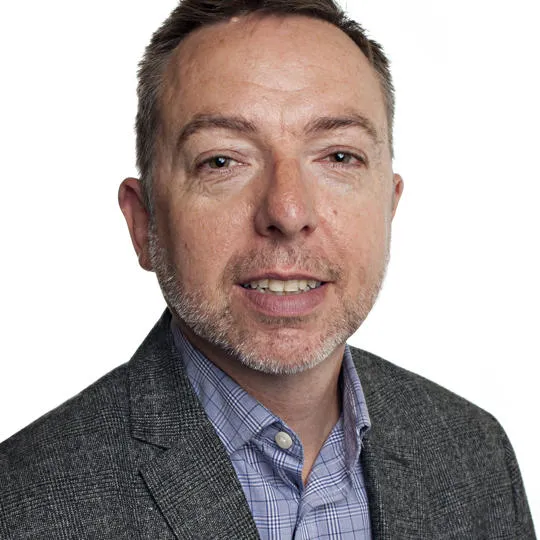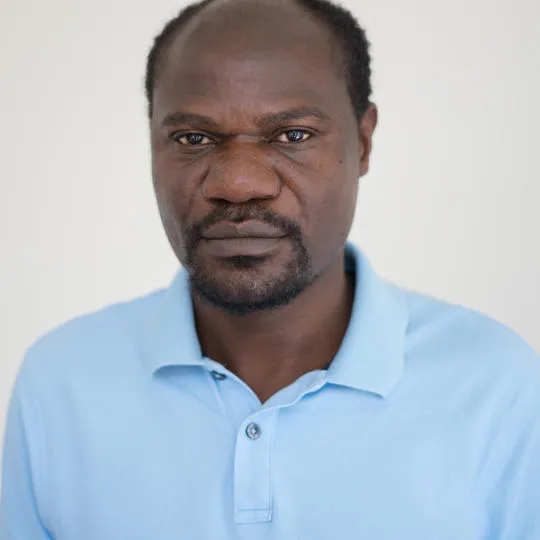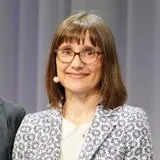Our Centre for Global Health Palliative Care partners with organisations and individuals around the world to build research capacity, generate evidence, inform policy and deliver education. We partner with overseas collaborators to discover the answers to locally relevant questions.
Professor Richard Harding, Director Centre for Global Health Palliative Care, Cicely Saunders Institute
01 March 2022
The research helping introduce high quality, cost-effective palliative care into the health systems where people need it.
Currently, only 14% of people in need of palliative care receive it, and we project the global number of people with palliative care needs will double by 2060.
Why? Well, people are ageing in greater numbers than ever before. In low and middle income countries, healthcare systems are typically under-resourced and unable to meet this growing need. This proves especially challenging given the increasing number of complex health conditions people have. The traditional care networks that existed for older people, such as being cared for by younger members of the family or their community, are changing too. Migration moves many people of working age away from their families, conflict displacement can fracture social networks and epidemic diseases such as HIV can destroy communities.
What can be done?
We know that in high-income countries, palliative care reduces costs while improving the quality of care. So, how can we help introduce high quality, cost-effective palliative care into the health systems where people so badly need it?
Professor Richard Harding and his team of researchers in the Centre for Global Health Palliative Care are finding ways to do this. They work with patients, families and clinicians in lower- and middle-income countries to understand what matters to them – whether it is physical, psychosocial or spiritual support – and develop a range of outcome measures designed to meet their needs and provide high-quality palliative care.
Outcome measures
Health professionals use outcome measures to assess the symptoms and concerns that affect patients and their families from their own perspectives. By using outcome measures over time, staff can quickly identify where to focus to make a difference for patients and are able to determine whether things are improving in response to treatment and care. Measuring the impact of a treatment or service on a patient also creates an evidence base which can be consulted in decision-making for other patients with similar conditions.
Outcome measures in low- and middle-income countries are a cheap and simple way to quickly understand a patient's needs and to allocate scarce resources to what matters most for the patient and their family.

From left to right: Rivo Baloyi, Olona Mzimkulu, Lindsay Farrant, Joy Hunter and Liz Gwyther, part of the project team based at the University of Cape Town aiming to strengthen health systems in South Africa.
Working across the world
The teamwork with people in lots of countries to improve access to high-quality appropriate palliative care. The focus of the Centre is on low and middle income countries, but the learning and experiences from these contribute to a global evidence base. Projects are being adapted and trialled in other countries, which is helping to improve palliative care in over a hundred countries, rich and poor.
In South Africa, members of the team are working with primary care teams in Cape Town to develop palliative care interventions for patients and families living with Chronic Obstructive Pulmonary Disease (COPD). In Malawi, the team have been finding ways for young people with HIV/AIDS to self-manage their pain relief. This project is now being adapted for use in the NHS to help people with HIV/AIDS in the UK. They are also using their outcome measures to help the World Health Organisation understand the different models of care around the world, in Belarus, Jamaica, Oman, Thailand, Vietnam and Zimbabwe.
With funding from the Medical Research Council (MRC), the team at King's continue to advance the theoretical and practical delivery of person-centred care. In Uganda and Zimbabwe, they are working with health care teams to develop a person-centred healthcare strategy that is acceptable to patients and staff. In Ghana, Malawi and Zimbabwe, they are collaborating with academic and hospital institutions to develop methods, generate evidence and build capacity for care of older multimorbid people.
If we want clinicians to use our outcome measures in routine practice, those measures must reflect what matters to patients and families, they must be able to detect real change and they should be simple to use and interpret. While there is often great innovation in practice happening on the ground, there is little investment to evaluate and share findings. The primary reason for this is the lack of outcome measures suited to context of the country in which healthcare is being delivered. Our work provides evidence for measuring outcomes, to inform quality improvement, drug availability, education and government policy.
Professor Richard Harding



